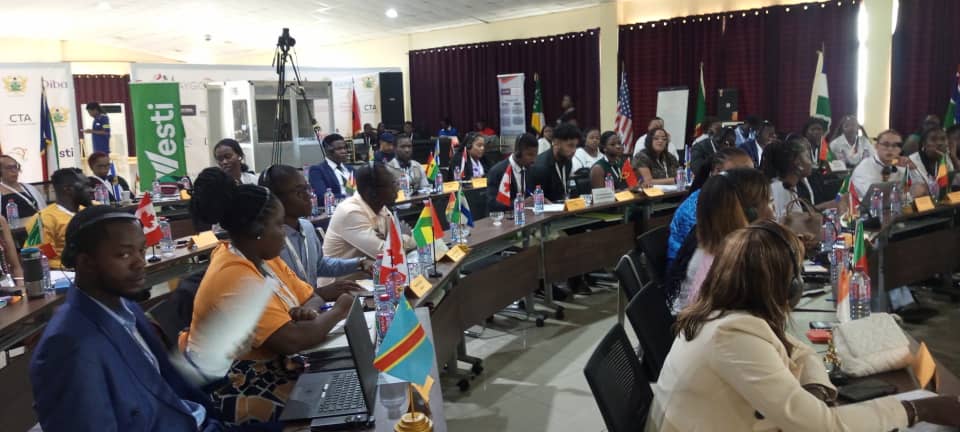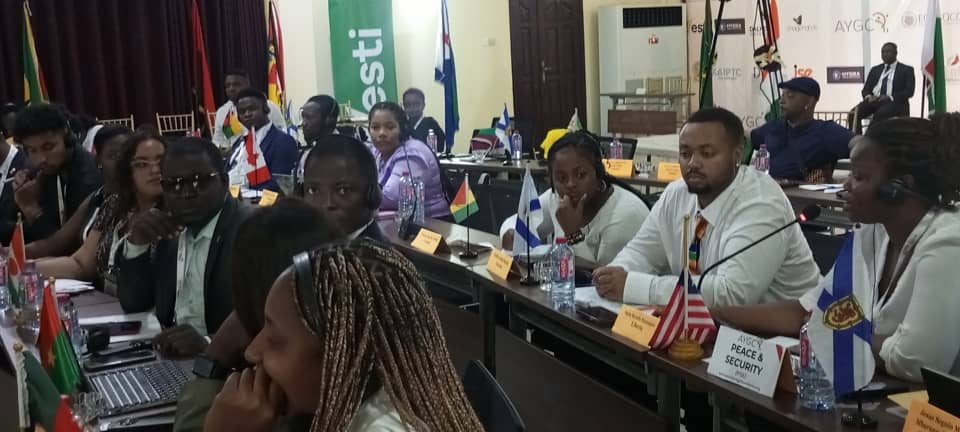By Isaac Arkoh
Mankessim (C/R), Aug 20, GNA – Youths from 27 African countries, Canada and the United States of America have petitioned the African Union (AU) to impress upon member states to adopt Swahili, French, and the English languages as lingua Francas in Africa.
The languages must also be integrated into schools’ curricula for teaching and learning, to become contact languages apart from the native languages.
A communique adopted at the end of the 25th Session of the African Youth and Governance Convergence (AYGC) at Mankessim in the Central Region on Friday said the three languages were the most dominant across the Continent.
The study of the three languages will expand one’s view of the world and limit the language barriers in communication across the Continent.
Mr Ernest Kwaku Mortey, the Session’s Vice President, said apart from entirely changing one’s traveling experience, it would help the brain to nurture, learn and understand new languages.

“Foreign language study is simply part of a very basic liberal education. To educate is to lead out of confinement, narrowness and darkness,’’ he said.
“Learning a foreign language and getting soaked into an entirely new culture and worldview is the surest way to becoming open-minded, understanding, tolerant and priceless.”
The 25th Session of AYGC offered participants the opportunity to focus on broad issues, challenges and opportunities facing the youth in higher education, governance, health, security, and the environment.
It was intended to, among other things, develop new digitally driven ideas and solutions to solve youth challenges.
It was put together by the Youth Bridge Foundation and partners, on the theme: “Advancing youth inclusive governance, peace, and security: The digital innovation factor.”
Making specific cases for the adoption of the three languages, Mr Mortey said the French Language was spoken on five continents and in 29 countries, and about 189 million Africans spoke with fluency.
In the countries where it was spoken, French was considered the language of business, science, and sometimes of government, making it an obvious choice for many.
The English Language, he said, was one of the most widely spoken languages by nearly 1.35 billion people around the world, however, not all spoke it as their native language as only 360 million did.
He said the whopping number of English speakers meant that speaking the Language opened many doors of opportunities for personal fun or business.
Besides, Swahili was spoken by more than 100 million people in Africa, largely in the southern and eastern parts of the Continent, Mr Mortey said.

Swahili is the most widely spoken African Language in Sub-Saharan Africa as the national language of Tanzania and Kenya and is widely spoken in Uganda, Rwanda, Burundi, the Democratic Republic of Congo, and the Comoros.
That notwithstanding, Mr Mordey celebrated the resilience of African youths as they continually strived to remain relevant in an ever-changing macroeconomic landscape.
Participants urged African leaders to strengthen the entrepreneurship and innovation ecosystem to improve student employability outcomes in sub-Saharan African universities through the promotion and capacitation of mutually beneficial partnerships.
That would catalyze the development of entrepreneurship curricula customised to each country’s unique situation and economic needs to leapfrog the creation of generational businesses across the continent.
It would, therefore, deal with the rapidly growing youth population, where many youths were confronted with high levels of unemployment and underemployment.
GNA